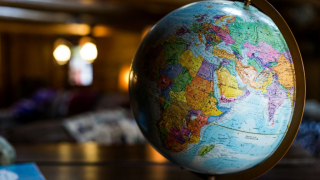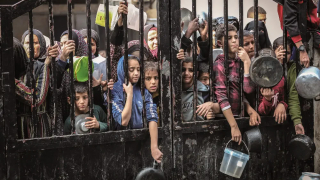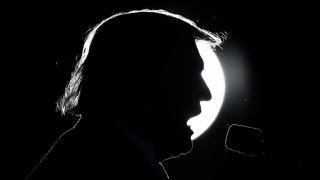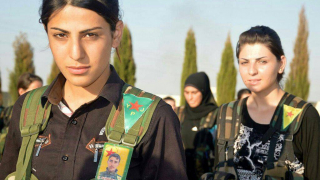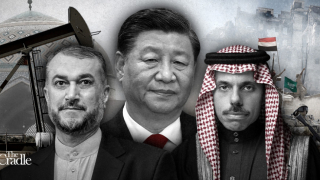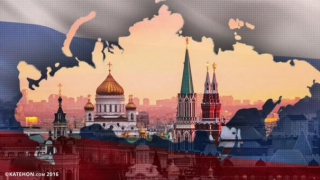Dugin’s Directive: “The Conflict in the Middle East Is the Start of a Great War”
The missile strikes by Iran on Israel are a natural step from the Islamic Republic of Iran. This is a response to Israel’s prior actions against Lebanon’s Hezbollah, including the assassination of its leader, Sheikh Sayyed Hassan Nasrallah, and Hamas’ political leader, Ismail Haniyeh (killed in Tehran), as well as the genocide of civilians in Gaza.
It is hard to say whether the hundreds of Iranian missiles have hit their targets because, as in all military conflicts, both sides tend to hide the true situation. However, it must be noted that the war in the Middle East, which many experts predicted as inevitable, has already become a reality. A “second front” in the confrontation between the rising multipolar world and Western hegemony is now open. The first front is Ukraine, the second is the Middle East.
For a long time after Israel’s invasion of Gaza and the start of the mass genocide of civilians, Hezbollah hesitated to enter the war directly. Iran also delayed serious action, attempting to find common ground with the West through its new president. However, Supreme Leader Ayatollah Khamenei decided to launch a massive missile strike on Israel.
The escalation has taken a new step. Israeli troops have invaded southern Lebanon. The shelling of Beirut and the entire territory of Lebanon has become the norm. Another front will undoubtedly open for Israel in Syria. I also believe Iraq will increasingly be drawn into the anti-Israel coalition, given that Iraq’s population and government are predominantly Shiite. Therefore, the Great War in the Middle East can be considered underway.
But what is the balance of power in this war? Clearly, Israel has a significant technological advantage. As long as technology decides everything, Israel remains the strongest side of the conflict, even compared to the well-armed Hezbollah and Iran. Yes, Hezbollah’s leaders have been eliminated. Yes, it has suffered enormous losses after Israeli intelligence operations. Yes, the West supports Israel.
Nevertheless, we must not underestimate the vast numerical superiority of the Axis of Resistance forces over Israel. Once the situation within Israel reaches a breaking point with the Palestinian population (over two million Palestinians within Israel itself, plus more than four million in the two Palestinian territories), the situation will become critical.
Of course, the West can help Israel intercept missiles and launch strikes. But what can be done with this “sea of Arabs” that has faced genocide in Gaza and is being systematically and cynically destroyed by Israel within its territory, violating all norms of warfare? I believe we are nearing a true explosion of Arab anger against Israel, which cannot be contained for much longer.
Gradually, this war will take on an even broader character. And it must be said that this situation benefits Israeli Prime Minister Netanyahu. He and his far-right cabinet, which includes ministers from the radical religious Zionist faction, such as Bezalel Smotrich and Itamar Ben-Gvir, have the eschatological goal of creating “Greater Israel.” Netanyahu’s government operates under the assumption that it has a “messianic credit,” believing the arrival of the “Mashiach” (the Jewish messiah, king of the Jews who will subjugate all nations to the Jewish people, but is perceived as the Antichrist or Dajjal by Christians and Muslims) is near.
Thus, the war with the Arabs is seen as sacred by religious Zionists, followers of Rabbi Kook and Dov Ber Levi Soloveitchik, who in the mid-20th century blessed the seizure of Arab lands for the creation of “Greater Israel,” or by modern rabbis like Dov Lior, who promotes similar views. Its culmination should be the destruction of the Al-Aqsa Mosque on the Temple Mount in Jerusalem and the beginning of the construction of the Third Temple, where the Jewish Mashiach is to reign. At the same time, there is an eschatological mobilization of the Islamic population in the region, especially the Shiites.
Thus, the situation will only intensify. Religious Zionists believe that they can hasten the coming of their Mashiach through radical and aggressive actions, a new Yom Kippur War. Although a significant portion of Israel’s population is secular and does not believe in this, organizing mass protests against Netanyahu, asking, “We were living fine in a democratic society, and now suddenly there’s this strange and terrifying war,” blaming Netanyahu for what is happening.
However, in the Islamic world, there is also a strong position in favor of escalation, with Shiites being the most prepared for an eschatological scenario. Israel, the Zionist regime, is seen as the servant of the Dajjal (Antichrist), who must be fought. For most ordinary Muslims, this is simply a war for survival, an ethnic war. In Gaza, Israel is conducting ethnic cleansing, killing tens, perhaps even hundreds of thousands of peaceful Palestinians.
How events will unfold is difficult to predict. It is clear that for the Biden administration, this is a highly unpleasant situation, diverting attention from Ukraine, whose support has quickly become secondary. It is also a blow to the global economy, as Iran could block the Strait of Hormuz at any moment, affecting vital trade routes. Additionally, there is the activity of the pro-Iranian Houthis in Yemen in the Red and Arabian Seas, and even in the Indian Ocean. This presents a grim scenario for the current US administration while also creating an opportunity for Trump, a supporter of religious Zionism and an apologist for Netanyahu.
As a result of the escalation in the Middle East, the entire world is being shaken. This is the main consequence of the beginning of the Great War.
But what position should Russia take in this situation? It is, of course, a very delicate question. On the one hand, Israel is not our enemy. On the other hand, Iran, the Yemeni Houthis, Hezbollah, the Syrians led by Bashar al-Assad, and the Iraqi Shiites are our friends and strategic allies.
Our strategic partners, who have largely supported Russia in its confrontation with the West over Ukraine, are now fierce enemies (to the death) of a country with which Russia has neutral relations. But considering that behind Israel stands the globalist West — the same forces that support our direct enemies in Ukraine, the Kiev junta — a very complex geopolitical model emerges. This puts the Russian leadership in a dilemma.
On the one hand, we seem to be moving towards fully supporting the forces of the Axis of Resistance in their struggle, not so much against Israel itself, but against the collective West that supports it. On the other hand, Putin (though to a lesser extent than Trump) feels a certain closeness to Netanyahu’s right-wing policies, his desire for a stronger state, and his defense of traditional (for Jews) values. However, this Israeli policy is not close enough for us to go against our own geopolitical interests.
We see that the stance of the Russian Foreign Ministry and the Kremlin leans towards supporting Iran, the Shiites, Palestinians, Lebanese, Yemenis, and Iraqis, and openly opposing the global West. But at some point, we will also have to take a position regarding Israel. We cannot forget that some right-wing Zionists in Russia have supported Moscow in the Ukrainian conflict. This is also an important factor. But will it outweigh our geopolitical alliance with the forces of the Axis of Resistance? The question remains open. In my view, Russia’s attitude towards Israel will be significantly reassessed, leading to a notable cooling of relations.


